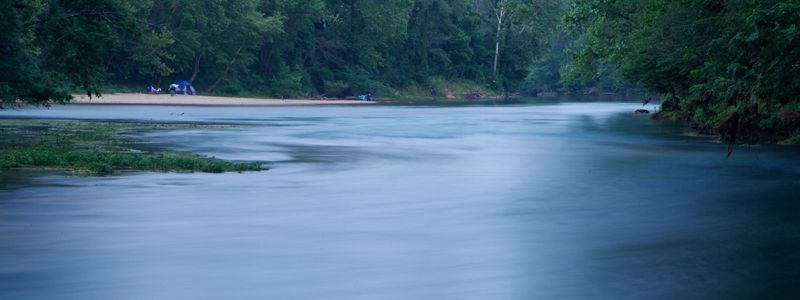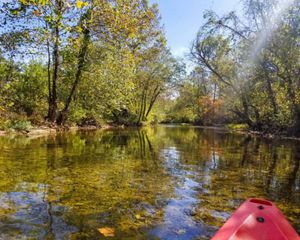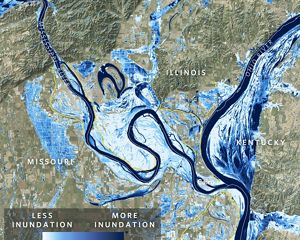Protecting the Meramec River
A collaborative effort is underway to protect Missouri's Meramec River, ensuring clean water, rich biodiversity and recreational opportunities.
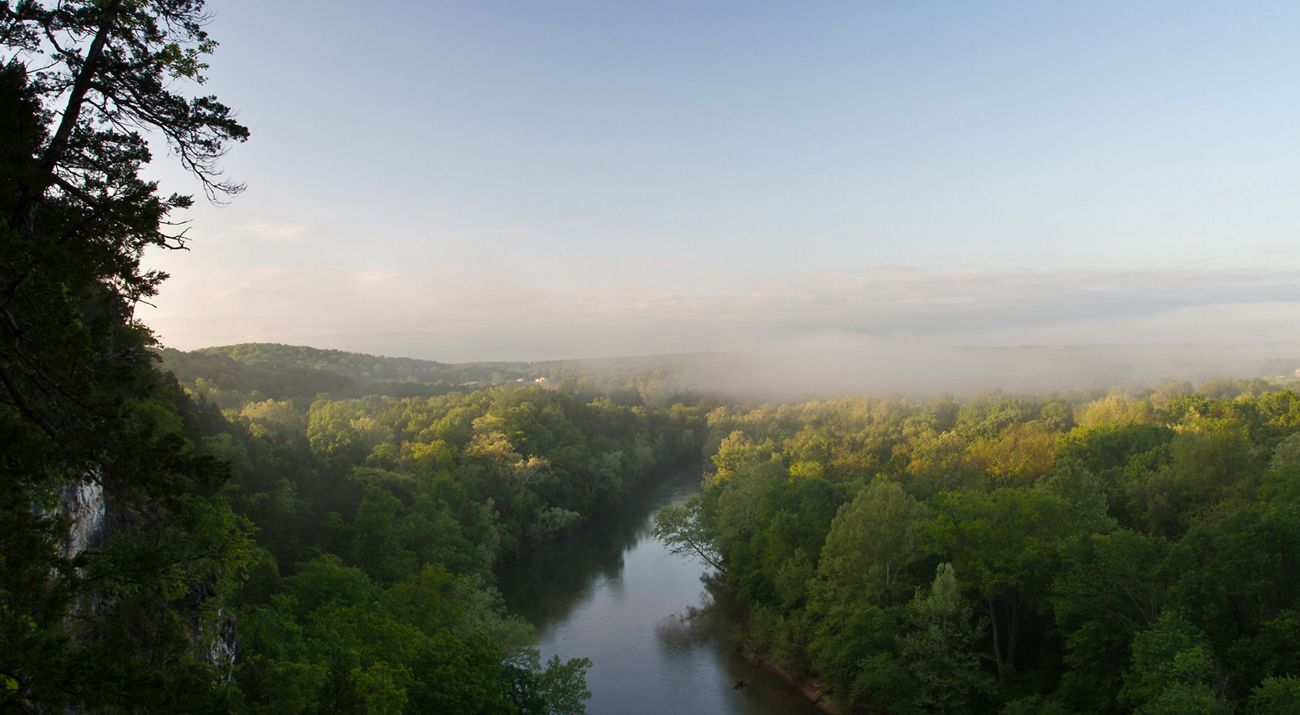
Protecting the Meramec River
The Meramec River is one of Missouri’s most treasured natural resources. Flowing over 200 miles from the Ozarks to the Mississippi River, this scenic waterway provides clean drinking water, supports abundant wildlife and serves as a favorite destination for outdoor recreation.
The Meramec boasts tremendous biodiversity. Nearly 300 aquatic or aquatic-dependent species have been recorded in the basin. Many of these are rare, sensitive and protected species. They include 31 species of global significance, several of which are found nowhere else on Earth.
The river is an important drinking water source for the St. Louis metro area. The river also supports Missouri’s outdoor recreation economy, drawing thousands of visitors annually for canoeing, kayaking, fishing and camping and contributing millions to local businesses.
However, it faces growing environmental pressures that threaten its health. Heavy livestock use in the upper watershed, historic mining contamination and increased urban and suburban development cause flashier floods, significant erosion and sediment buildup, which can alter the river’s natural flow and degrade its banks. Habitat disturbance from these activities disrupts the ecosystems that many species rely on, leading to a decline in biodiversity.
Collaborative Conservation Efforts
To protect the Meramec, TNC led a collaborative effort with 29 conservation partners to develop the Meramec River Conservation Action Plan in 2014. The plan serves as a current conservation baseline for identifying the highest priority projects to improve habitat, water quality and flood resilience in the watershed.
The plan was derived from more than 40 existing conservation plans, policies and publications related to resource management in the Meramec River Basin. Businesses, government agencies, private landowners and conservation organizations can use the plan to determine best practices to protect, restore and conserve the Meramec's aquatic resources.
Through ongoing investment in science-based solutions and community-driven conservation, the Meramec River can remain a vital, resilient resource for Missouri, safeguarding its natural beauty and ecological health for years to come.
The Meramec River Conservation Action Plan
Strategies for long-term protection.
Explore the Action Plan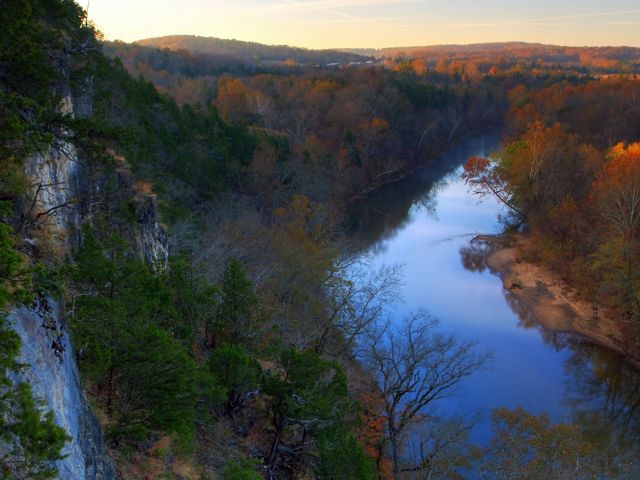
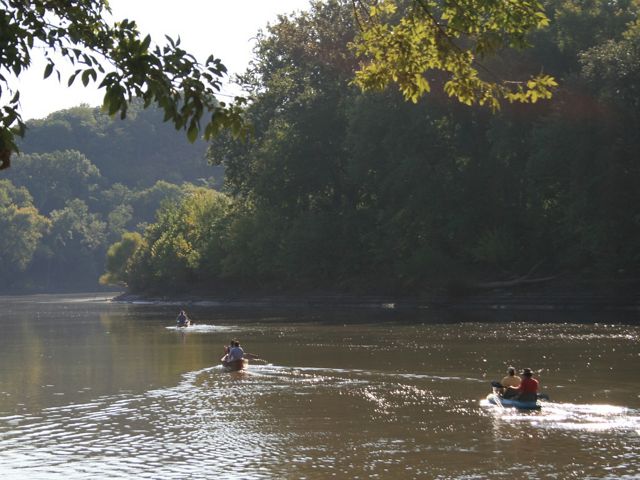
A Cleaner Future for The Big River
For decades, the Big River—a major tributary of the Meramec—has been plagued by contamination from historic lead mining, which began as early as the 1700s. These mining operations were not initially subject to the environmental and human health protections we have today, and the accumulated mining byproducts introduced lead contamination into the watershed and the river itself. Before the health impacts of lead were known and environmental protection laws were in place, mine waste accumulated and was inadvertently introduced to the Big River’s habitat. The pollution has taken a toll on local wildlife, especially freshwater mussels and fish.
Today, the Big River Task Force—a coalition of TNC, the U.S. Army Corps of Engineers, the EPA and other partners—is working to restore the river’s health. A key focus of the task force is reducing soil erosion, which carries contaminated sediments downstream. If left unchecked, this pollution could reach the Meramec River, a drinking water source for the St. Louis metro.
By tackling lead contamination and protecting the ecosystem, the task force aims to revitalize the Big River, making it safer for wildlife, recreation and future generations.
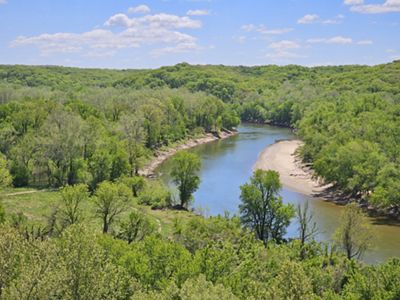
Tools for Floodplain Protection
Since 2015, the Meramec River Basin has experienced several, record-breaking flood events. This has impacted many communities in Jefferson, Franklin and St. Louis counties.
In response, the U.S. Army Corps of Engineers has developed a Lower Meramec Floodplain Management Plan intended to serve as a roadmap for communities affected by these events. They held three workshops to collect input and share information about the plan. TNC attended all three workshops to promote nature-based solutions that should be incorporated into the plan.
The Nature Conservancy has created a Lower Meramec Floodplain Tool designed to identify critical opportunities for floodplain protection and restoration in the Lower Meramec River Basin. This tool allows stakeholders to find solutions that work for their communities.
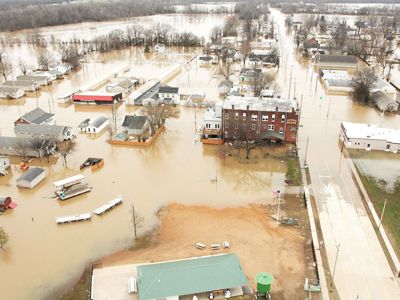
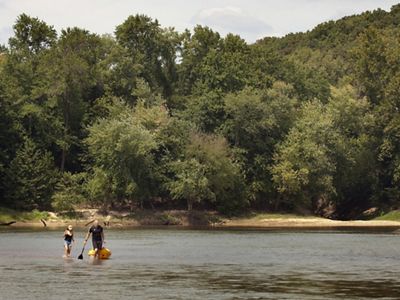
Stewarding the Meramec: A Q&A with Tom Stevens
Meramec & Big River Urban Waters Ambassador Tom Stevens is passionate about protecting Missouri’s rivers. In this Q&A, he shares his journey and conservation efforts.
What inspired you to get involved in conservation work? I found a deep connection to water early in my adult life, and I chose to spend my career working directly with water. Working in conservation allows me to positively contribute to the earth in a way that aligns with my values.
Tell me a little about your background and what you do in your current role. I previously worked in a conservation corps in the southeastern United States, led field crews in aquatic assessment river surveys in Utah and Colorado, and worked for Missouri Department of Natural Resources conducting stormwater inspections and audits.
In my current role, I act as a convener and facilitator between federal, state and local government agencies, as well as other NGOs who are working within the Meramec watershed. One major task is to facilitate Big River Task Force meetings to encourage collaboration between all the partners working in the region. Planned projects also include working with communities in the Meramec basin to influence environmental hazard mitigation plans and encourage the implementation of nature-based solutions to increase floodplain resiliency.
What are some of your favorite ways to spend your free time? I like attending live music events, exploring nature through paddling, hiking, foraging and rockhounding, sharing meals and time with friends, learning about practical uses for plants and making things such as tinctures and salves.
What are some of the best ways people can experience the Meramec River and Big River? I think any way of interacting with the rivers or nearby lands are worthwhile, whether it’s through paddling, fishing, hiking in the state parks and conservation areas, or exploring the caves and springs in the area. There are a lot of public lands throughout the watershed where people can get away from crowds and connect with nature.
Want to Learn More About Our Work in Missouri?
Sign up to receive monthly conservation news and updates from Missouri. Get a preview of Missouri’s Nature News email.
